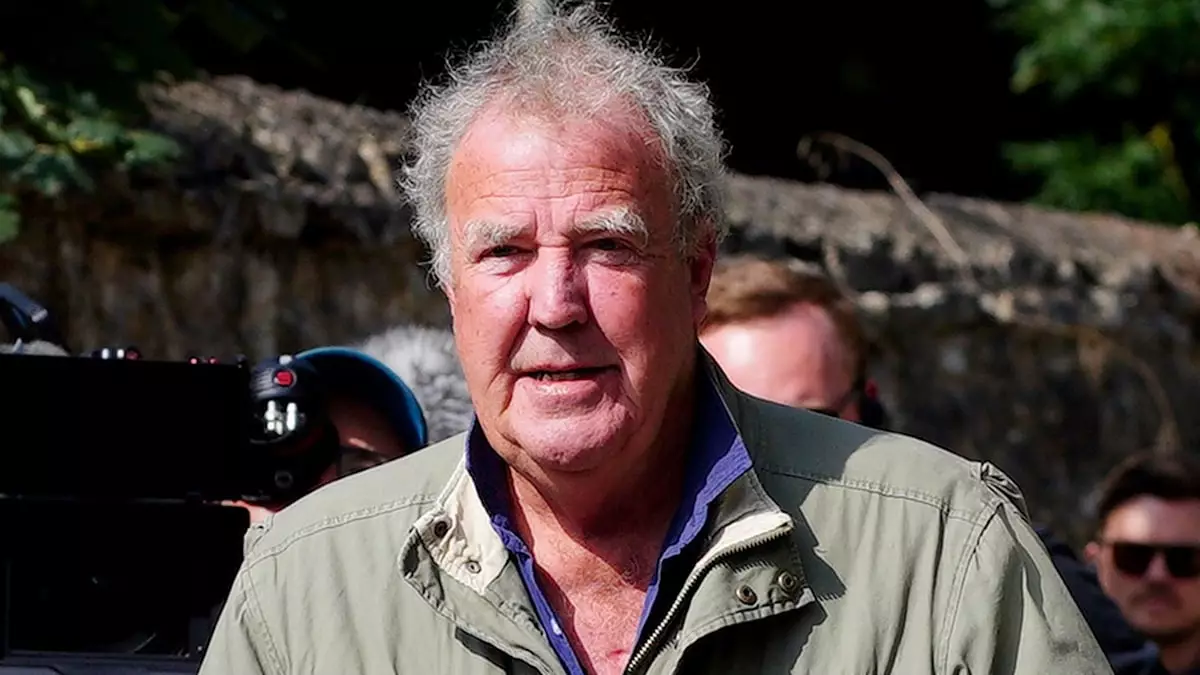In an age where social media serves as a double-edged sword for public figures, Jeremy Clarkson finds himself navigating a tempest both literal and metaphorical. The famous television personality, known for his sharp wit and unfiltered commentary, took to Instagram to address the impending chaos brought on by Storm Éowyn. With his trademark humor, Clarkson urged his 8.8 million followers to “pray for us,” dramatizing the situation at Diddly Squat Farm, which he operates in the serene Cotswolds. However, his post sparked a whirlwind of reactions that revealed a complex interplay between humor, empathy, and public expectations.
The backdrop of Clarkson’s social media post was the severe weather warnings associated with Storm Éowyn. This winter storm was said to pose “danger to life,” hammering various parts of the UK with wind gusts reaching up to 90 mph and heavy rainfall. These weather conditions resulted in several life-threatening scenarios, including travel disruptions and infrastructure damage, gripping the nation with genuine concern. Surprisingly, amidst this chaos, Clarkson opted to share a video showcasing his farm basking in sunlight and gentle breezes, intentionally contrasting with the tumultuous reality faced by many.
This approach, steeped in irony, elicited a range of reactions from his followers. While many appreciated the comedic relief amid the storm’s severity, others criticized him for what they deemed a “tone deaf” response. The comments illuminated a profound division among the audience, revealing how humor can serve as a coping mechanism for some while alienating others who might feel the weight of the storm far more acutely.
Clarkson’s charm lies in his fearless self-expression, often conveyed through tongue-in-cheek remarks and outlandish statements. The dichotomy of presenting a sunny Cotswolds landscape while a storm brews outside presents an interesting commentary on his approach to storytelling. With many people genuinely in distress, his humor could be perceived as an escapism tactic, one that many celebrities have adopted in trying times. However, this strategy is fraught with risks, particularly in the digital age where immediacy often undermines context.
In this particular instance, Clarkson’s post diverged into a grey area where humor collided with insensitivity. Critics asserted that while he might be jesting from the safety of his land, countless individuals were grappling with real dangers—something that could not be brushed aside lightly. Herein lies the challenge for Clarkson: balancing his comedic persona with the responsibilities of a public figure who can inadvertently influence public discourse.
As if the discourse surrounding Storm Éowyn weren’t enough to provoke a response, Clarkson’s farming endeavors brought additional scrutiny, primarily focusing on the price points at Diddly Squat Farm Shop. Following a critical assessment from a visitor who deemed his products ‘overpriced,’ Clarkson’s fiery spirit sparked once more. Notably, a reported £200 pork pie raised eyebrows and suspicions alike, leading Clarkson to publicly clarify the situation.
His rebuttal revealed a deeper understanding of how consumers perceive luxury and authenticity in a celebrity-run venture. For some fans, even the humor in his defense failed to dwindle frustrations regarding exorbitant prices, sparking conversations about value perception in artisanal versus mass-produced goods. Such discussions are pivotal not only for Clarkson’s image but also for redefining what the modern consumer desires when it comes to local and farmhouse produce.
The saga surrounding Jeremy Clarkson illustrates the intricate web celebrities must navigate on social media. On one hand, they are expected to provide levity and entertainment; on the other, they are held accountable for their narratives, especially when their brands intertwine with real-world issues. As storm clouds gather—both physically and metaphorically—public figures must tread carefully to balance their public personas while being conscious of the broader impact their words can wield.
Clarkson remains a fascinating case study in celebrity culture, where humor can illuminate and alienate, and where every post can combine personal experience with societal expectations. His predicament serves as a reminder that, in a world connected by digital platforms, the line between jest and insensitivity is razor-thin—encouraging all to consider the full spectrum of human experience before clicking “post.”


Leave a Reply